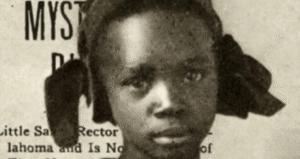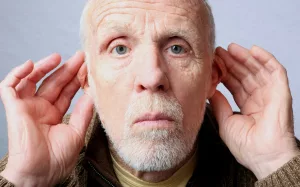Africa’s linguistic richness is a tapestry woven over millennia. Imagine a land where each valley, river, and mountain range has, in many ways, nurtured its own language. The continent’s languages are not just means of communication; they are living records of history, culture, and human evolution. Let’s delve deeper into the various aspects that have shaped this extraordinary linguistic landscape.
1. Historical and Evolutionary Factors
The Origin of Human Language in Africa
Africa is widely accepted as the cradle of humanity. Early humans are believed to have first emerged in Africa around 200,000 years ago. As human populations expanded and migrated within and beyond the continent, different groups developed distinct languages. The sheer amount of time and geographic separation allowed these languages to evolve independently, resulting in the high number of languages we see today.
One fascinating aspect is how archaeological findings suggest the development of complex communication systems. As tools and artifacts evolve, so too does the need for language to communicate their use, leading to diverse linguistic expressions across early human settlements.
Long Periods of Language Evolution in Isolation
For millennia, African communities lived in relative isolation from one another due to vast geographical barriers such as deserts, mountains, and dense forests. This isolation allowed languages to evolve separately over long periods, leading to the formation of unique languages and dialects even among neighboring communities.
Consider the San people of the Kalahari Desert, whose languages include unique click sounds. These linguistic features have likely developed over long periods of isolation, illustrating how geography can influence language development.
2. Geographical and Environmental Factors
Geographic Barriers and Natural Boundaries
Africa’s diverse geography, which includes the Sahara Desert, the Congo Rainforest, the Great Rift Valley, and various mountain ranges, has historically separated populations. These natural barriers hindered interaction between different groups, leading to the development of distinct languages over time. Even within smaller regions, environmental factors like rivers and valleys could lead to the formation of micro-languages spoken by isolated communities.
For example, the vast Sahara Desert has historically acted as a significant barrier, isolating North African populations from those in sub-Saharan Africa. This has resulted in distinct linguistic families, such as Afroasiatic languages in the north and Niger-Congo languages in the south.
Micro-Climates and Isolated Ecosystems
The presence of micro-climates and isolated ecosystems in Africa led to the development of localized communities with unique ways of life, often reflected in their languages. For example, hunter-gatherer societies in Central Africa developed languages that differ vastly from those of agricultural communities in West Africa due to differences in lifestyle and environmental adaptation.
In Madagascar, the Malagasy language reflects a blend of African and Austronesian influences, a testament to the island’s unique position and diverse ecological zones that have supported varied human settlement patterns.
3. Social and Cultural Diversity
Ethnic and Tribal Complexity
Africa is home to a vast number of ethnic groups, each with its own language, traditions, and identity. These groups have historically valued their linguistic and cultural distinctiveness. The concept of ethnicity is deeply tied to language in many African societies, leading to a situation where even small communities develop and maintain their own languages as a key marker of identity.
The Yoruba and Igbo communities of Nigeria, for instance, each boast vibrant languages and cultural traditions, illustrating how language serves as a vehicle for cultural expression and continuity.
Oral Traditions and Language Preservation
In many African cultures, oral traditions are central to the transmission of history, culture, and knowledge. The reliance on oral communication has helped preserve languages over generations. Unlike written languages that may converge or standardize over time, spoken languages are more likely to diverge and develop unique characteristics within small communities.
Storytelling, song, and dance are integral to communities like the Maasai of Kenya and Tanzania, where language is a dynamic, living art that evolves with each telling, ensuring its survival through generations.
4. Political and Historical Fragmentation
Pre-Colonial Political Systems
Before the arrival of European colonizers, Africa was home to a vast array of kingdoms, city-states, chiefdoms, and other political entities, each with its own language or dialect. Unlike Europe, where larger political entities tended to unify languages, Africa’s pre-colonial political fragmentation allowed multiple languages to coexist even within small geographical areas.
The Ashanti Empire, for instance, had its own administrative language, which was distinct from the languages spoken by neighboring states, showcasing the diversity within political boundaries.
Colonialism and the Artificial Division of Africa
European colonizers drew borders that often disregarded the existing ethnic, linguistic, and cultural boundaries of African societies. This resulted in countries where multiple languages are spoken within a single nation-state. Colonial policies often favored certain languages over others, leading to further fragmentation and preservation of linguistic diversity. For example, in Nigeria, over 500 languages are spoken due to the complex interplay of ethnic identities, colonial boundaries, and historical divisions.
Colonial education systems imposed languages such as French, English, and Portuguese as lingua francas, yet local languages persisted, often in informal settings, preserving linguistic diversity despite external pressures.
5. Cultural Pride and Language Continuity
Language as an Expression of Identity
In many African societies, language is closely tied to cultural identity. Preserving one’s language is seen as a way to maintain cultural heritage and resist assimilation into dominant cultures. This cultural pride has contributed to the survival and resilience of many African languages, even in the face of external pressures such as colonization and globalization.
Take the Berber languages of North Africa, which have seen a renaissance as communities seek to reclaim their cultural heritage through language revitalization projects.
Multilingualism as a Norm
In many parts of Africa, multilingualism is a way of life. It is common for individuals to speak several languages fluently, switching between them depending on the social context. This linguistic flexibility has allowed different languages to coexist rather than being replaced by a dominant language, thus contributing to the overall diversity.
In cities like Johannesburg, people may navigate daily interactions in English, Zulu, Afrikaans, or Sotho, illustrating the dynamic multilingual environment that supports language diversity.
6. Language Families and Linguistic Complexity
The Presence of Multiple Language Families
Africa is home to several major language families, including Afroasiatic, Nilo-Saharan, Niger-Congo, and Khoisan. Each of these families is further subdivided into branches and groups, leading to a wide array of languages. The Niger-Congo language family alone includes over 1,500 languages, including major languages like Swahili, Yoruba, and Zulu. The sheer number of language families contributes significantly to Africa’s linguistic diversity.
The Bantu expansion, a major linguistic and cultural movement, spread Niger-Congo languages across much of sub-Saharan Africa, diversifying into hundreds of distinct languages over centuries.
Click Languages and Unique Phonetic Systems
Some of Africa’s languages, particularly those spoken by the Khoisan peoples of Southern Africa, include click consonants—a feature not found in most other languages worldwide. This phonetic uniqueness highlights how isolated communities developed linguistic systems vastly different from those of other regions.
The Juǀʼhoansi language, with its complex click sounds, offers linguists a unique window into phonetic evolution, demonstrating the creative adaptability of human language.
7. The Impact of Globalization and Modernization
Balancing Tradition with Modern Influence
As globalization accelerates, African languages face new challenges and opportunities. The spread of global languages through media, education, and technology can threaten local languages. Yet, this same globalization provides tools for language preservation and revitalization.
Digital platforms are now being used to document and teach African languages, such as through mobile apps and online courses. Projects like the African Storybook Initiative create digital stories in multiple languages, fostering literacy and language preservation.
Language Revitalization Efforts
Efforts are underway across the continent to revitalize and preserve languages at risk of extinction. Community-based initiatives, supported by international linguists and local governments, aim to document and teach endangered languages to younger generations.
Programs in South Africa, for example, encourage the use of indigenous languages in schools and media, promoting cultural pride and continuity in a rapidly changing world.
8. The Role of Education and Policy
Integrating Local Languages into Education
Many African countries are recognizing the importance of including local languages in formal education systems. Multilingual education policies are being adopted to improve literacy and learning outcomes, showing respect for linguistic heritage while enhancing educational accessibility.
In Kenya, for instance, the curriculum includes teaching in local languages in early grades, which has been shown to improve student comprehension and engagement.
Policy Challenges and Opportunities
Crafting policies that balance the promotion of national unity with linguistic diversity is complex. Governments must navigate the diverse linguistic landscape to ensure inclusivity without marginalizing smaller language groups.
Countries like Ethiopia have embraced federal systems that allow regions to use and promote their languages in education and governance, offering a model for others aiming to manage linguistic diversity effectively.
9. Future Directions and Preservation
Embracing Technology for Language Preservation
The future of Africa’s linguistic diversity lies in embracing technology. Digital archives, language apps, and online platforms are becoming crucial tools for documenting and teaching languages, particularly those at risk of disappearing.
Projects like the Endangered Languages Project provide resources and support for communities working to keep their languages alive in the digital age.
Community Involvement and Empowerment
Empowering local communities to take ownership of language preservation initiatives is key. By involving elders, educators, and youth in language documentation and revitalization efforts, communities can ensure that their linguistic heritage continues to flourish.
Workshops, storytelling festivals, and language camps are some of the ways communities engage with their linguistic heritage, fostering a sense of pride and continuity.
Africa’s incredible linguistic diversity is the result of thousands of years of historical evolution, geographic isolation, cultural pride, and social complexity. While it presents challenges in terms of communication and governance, it is also a testament to the continent’s rich cultural heritage and adaptability. Understanding the reasons behind Africa’s multitude of languages offers insight not only into its past but also into the vibrant diversity that continues to define the continent today.




